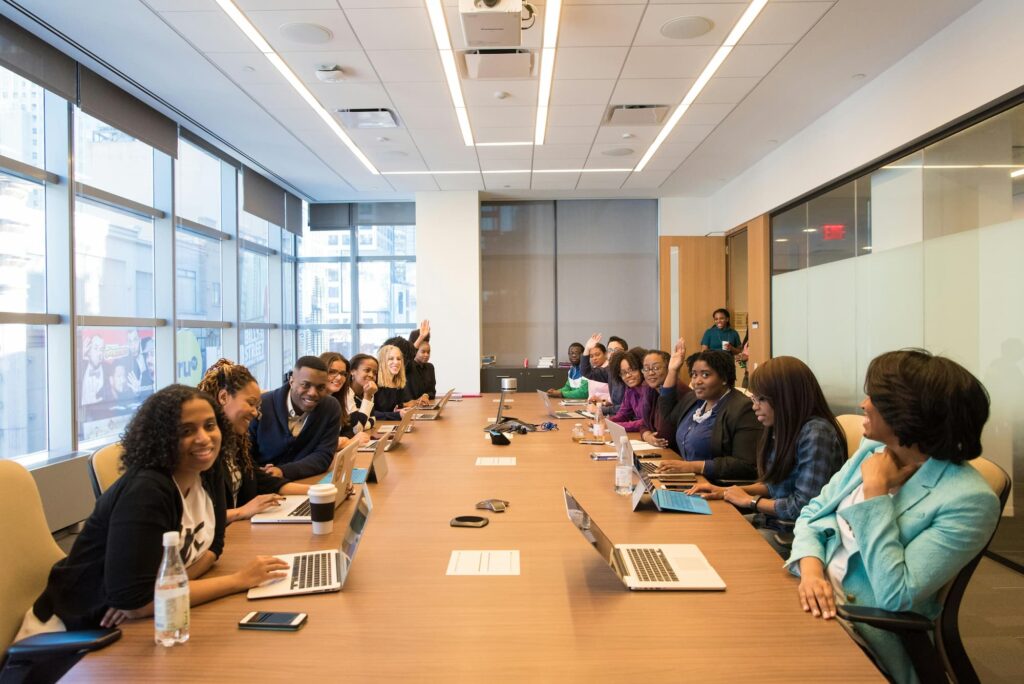The landscape of education is changing fast, and one of the most visible shifts is the rise of professional content creation as a viable career path. From YouTube channels to TikTok trends, from digital journalism to branded storytelling, content has become an industry in its own right. Gen Z, the first generation to grow up fully immersed in the digital environment, sees content creation not just as a hobby but as a professional ambition. To succeed, they are increasingly looking for formal education that combines creative skillsets with technical knowledge and business acumen. The following list of specialisations is based on analytics provided by Agentur Ghostwriter, a leading German agency specialising in academic writing assistance. Their analysis identifies the most in-demand educational pathways for aspiring content creators today.
Why Specialisations Matter for Content Creators
The idea that successful content creators are purely self-taught is becoming outdated. While creativity and self-expression remain at the core, the modern content industry requires much more: technical production skills, understanding of digital marketing, data analysis, community management, and even legal knowledge. Specialisations allow students to focus their learning on areas that align with both their talents and market needs.
Gen Z’s approach to career planning reflects a blend of passion and pragmatism. They want to enjoy what they do while ensuring they can monetise their skills. This has led to a diversification of educational choices that go beyond traditional arts or media studies. The most popular specialisations combine creativity with digital technology, strategy, and entrepreneurship.
Top Specialisations Chosen by Gen Z Aspiring Content Creators
Below is a detailed overview of specialisations emerging as favourites among Gen Z content creators, along with explanations of why they matter in today’s market.
1. Digital Marketing and Social Media Strategy
This specialisation focuses on audience targeting, platform algorithms, influencer partnerships, and performance analytics. For content creators, it bridges the gap between producing engaging material and ensuring it reaches the right viewers at the right time.
Key skills learned: Social media analytics, paid advertising, content scheduling, and audience engagement tactics.
2. Multimedia Production
Combining video, audio, and graphic design skills, this area equips creators to produce high-quality, multi-platform content. As platforms increasingly favour mixed-media storytelling, versatility in production is critical.
Key skills learned: Camera operation, sound editing, motion graphics, and post-production workflows.
3. Graphic Design and Visual Communication
The visual identity of a brand or channel can determine its recognition and appeal. This specialisation teaches principles of design, colour theory, and brand aesthetics to help content stand out in a crowded feed.
Key skills learned: Typography, layout design, user interface (UI) elements, and visual branding.
4. Creative Writing for Digital Media
Storytelling remains the backbone of effective content. This pathway focuses on crafting compelling narratives adapted for different platforms, from short-form social posts to long-form brand journalism.
Key skills learned: Copywriting, scriptwriting, content adaptation, and SEO-friendly writing.
5. Video Editing and Post-Production
As video becomes the dominant form of online content, editing skills are more crucial than ever. This specialisation dives into technical and creative aspects of turning raw footage into polished stories.
Key skills learned: Editing software proficiency, colour grading, sound mixing, and narrative pacing.
6. Animation and Motion Graphics
Short-form animations and dynamic visuals are highly effective for capturing attention online. This specialisation blends artistry with software skills to create eye-catching motion-based content.
Key skills learned: 2D and 3D animation, special effects, and visual storytelling through movement.
7. Photography and Image Editing
Still imagery remains essential for branding, social media, and product promotion. A deep understanding of photography helps content creators produce consistent and high-quality visuals.
Key skills learned: Lighting, composition, image retouching, and photo-based content planning.
8. Data Analytics for Content Performance
Data-driven decision-making is reshaping how creators plan their work. This specialisation focuses on interpreting audience metrics and optimising content strategies accordingly.
Key skills learned: Web analytics, KPI tracking, audience segmentation, and A/B testing.
9. Branding and Identity Development
Branding is about more than logos; it’s about consistent messaging and audience perception. This track teaches how to build and maintain a brand identity across channels.
Key skills learned: Brand voice creation, market positioning, and brand experience design.
10. Podcast Production and Audio Storytelling
Podcasts remain one of the fastest-growing content formats. This specialisation covers both technical production and narrative development for audio-based platforms.
Key skills learned: Audio editing, interviewing techniques, sound design, and distribution strategy.
11. User Experience (UX) Design for Digital Platforms
Content is often consumed within apps or websites, making user experience a vital part of content delivery. This area helps creators design intuitive and engaging user journeys.
Key skills learned: Wireframing, usability testing, and interface design principles.
12. Public Relations for Digital Creators
Managing public image and relationships with media outlets can make or break a creator’s career. This specialisation teaches strategic communication and crisis management.
Key skills learned: Press release writing, media outreach, and reputation management.
13. E-Commerce for Content Monetisation
Many creators turn to selling merchandise or digital products. This specialisation blends online retail strategies with content-driven marketing.
Key skills learned: Product development, online store setup, and sales funnel optimisation.
14. Community Management and Online Engagement
A loyal audience is often more valuable than a large one. This track focuses on building strong relationships with followers and fostering interaction.
Key skills learned: Moderation, community guidelines creation, and loyalty programme development.
15. Live Streaming Production
Real-time engagement is becoming a cornerstone of social media strategy. This specialisation trains creators to host and produce professional-quality live broadcasts.
Key skills learned: Streaming software, audience interaction, and live event planning.
16. Search Engine Optimisation (SEO) for Creators
While often associated with websites, SEO applies to content visibility across platforms. Understanding keyword strategy and search algorithms can significantly increase reach.
Key skills learned: Keyword research, metadata optimisation, and content indexing strategies.
17. Interactive Media Design
This innovative area covers interactive storytelling formats like web experiences, gamified content, and AR/VR integration.
Key skills learned: Game mechanics, interface design for interactivity, and immersive experience planning.
18. Copywriting for Advertising
Strong ad copy can dramatically improve conversion rates for sponsored content and campaigns.
Key skills learned: Persuasive writing, audience targeting, and ad compliance guidelines.
19. Content Strategy and Editorial Planning
Consistency and quality in content require a well-thought-out plan. This specialisation focuses on editorial calendars, content audits, and workflow optimisation.
Key skills learned: Strategic planning, cross-platform scheduling, and content lifecycle management.
20. Cross-Cultural Communication in Content Creation
Gen Z operates in a global marketplace, making cultural awareness essential for effective communication.
Key skills learned: Cultural adaptation, localisation strategies, and inclusive messaging.
21. Ethics and Law for Digital Content
Understanding copyright, privacy laws, and advertising regulations protects creators from legal pitfalls.
Key skills learned: Intellectual property management, compliance, and ethical guidelines.
22. Influencer Marketing Management
Some creators become influencers, others work with them. This track covers the business side of influencer collaborations.
Key skills learned: Contract negotiation, campaign analytics, and influencer relationship building.
23. Visual Effects (VFX) for Online Media
From subtle enhancements to cinematic sequences, VFX can transform content quality.
Key skills learned: Compositing, green screen techniques, and effects integration.
24. Crisis Communication in Social Media
Online reputations can shift overnight. This specialisation teaches proactive and reactive strategies for maintaining trust.
Key skills learned: Damage control planning, transparent communication, and stakeholder messaging.
25. Email Marketing for Creators
Despite social media dominance, email remains a high-conversion channel.
Key skills learned: List building, segmentation, and campaign design.
26. Educational Content Development
Tutorials, courses, and skill-based content are increasingly popular.
Key skills learned: Curriculum design, educational video production, and learner engagement.
27. Sustainable and Ethical Content Practices
From eco-friendly production to inclusive representation, this specialisation focuses on responsible creation.
Key skills learned: Sustainable sourcing, diversity in representation, and ethical audience engagement.
28. Cross-Platform Content Adaptation
Not all content works the same way on every platform. This track teaches how to adapt formats and messaging for maximum impact.
Key skills learned: Platform-specific optimisation, format editing, and audience targeting per channel.
29. Data Visualisation for Storytelling
Transforming complex data into engaging visuals is a growing niche.
Key skills learned: Infographic design, interactive charts, and visual narrative techniques.
30. Negotiation and Business Skills for Creators
A creator is also a business owner. This specialisation covers basic entrepreneurial skills tailored to creative professionals.
Key skills learned: Contract management, financial planning, and deal negotiation.

How Gen Z Chooses Their Specialisation
According to the analysis by Agentur Ghostwriter, Gen Z tends to choose their educational path based on three main factors:
- Alignment with personal brand goals – The specialisation must enhance their unique style and voice.
- Monetisation potential – They prefer areas with clear revenue opportunities.
- Adaptability to changing platforms – They value skills that can be transferred to new tools and platforms.
Conclusion
The content creation industry is no longer an informal playground but a structured and competitive profession. Gen Z recognises this reality and invests in specialisations that prepare them for the multifaceted demands of the market. The 30 specialisations outlined here reflect a balance of creativity, technical skill, and strategic thinking – the combination needed for sustainable success.
By choosing the right educational path, content creators can future-proof their careers, stand out in a crowded digital space, and continually adapt to the evolving demands of the audience and industry. And with analytical insights like those from Agentur Ghostwriter, aspiring professionals can make informed decisions about which skills will truly set them apart.
